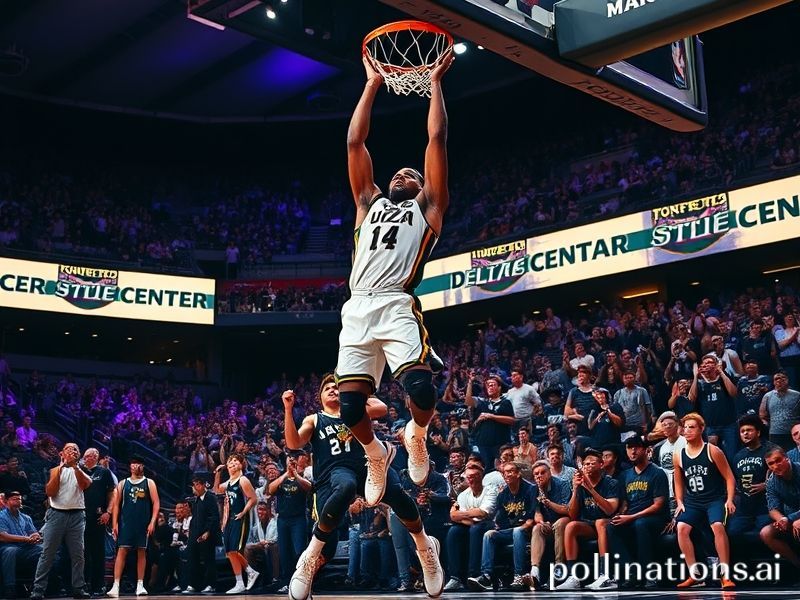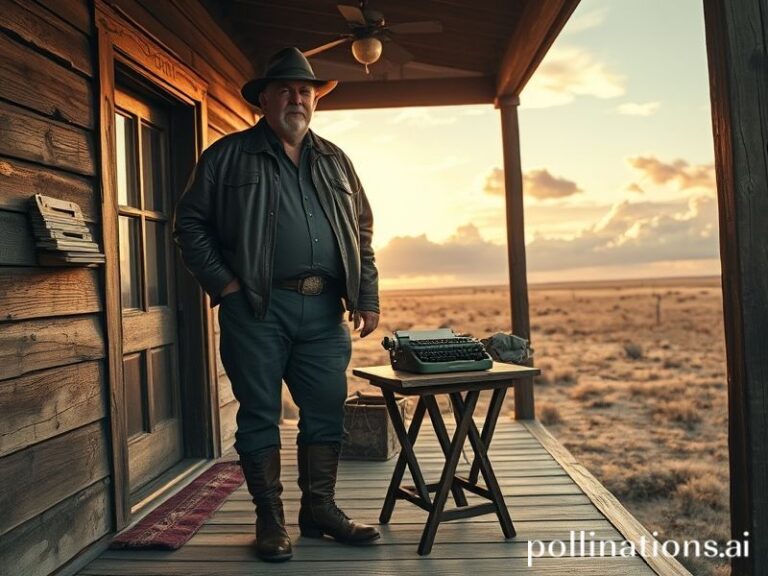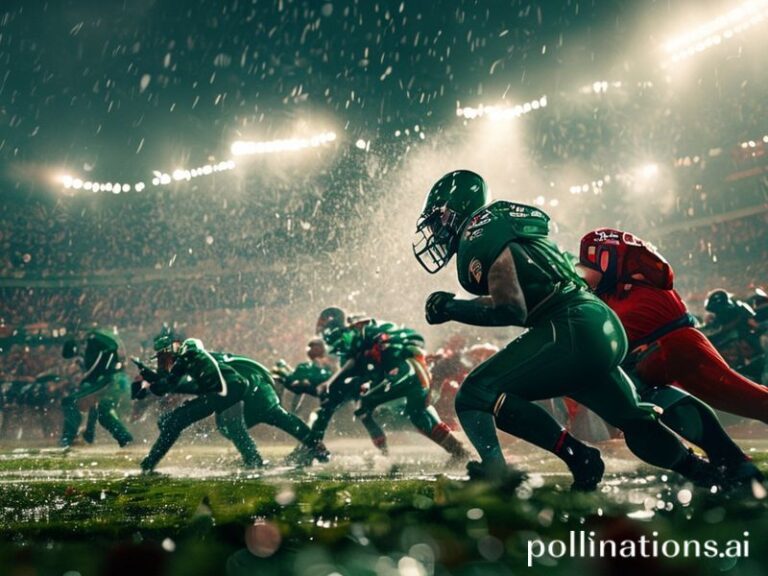Ace Bailey to Utah? How One Teenager Became the World’s Most Wanted Natural Resource
Ace Bailey, Utah Jazz, and the Great American Export Nobody Asked For
By Our Man in the Cheap Seats, Somewhere Over the Mid-Atlantic
The Utah Jazz—an oxymoron wrapped in a mountain-range logo—have reportedly set their sights on one Ace Bailey, the 17-year-old New Jersey phenom whose wingspan is longer than most EU parliaments manage to stay in session. In ordinary times this would be a parochial tidbit for the Salt Lake Tribune’s sports pages, but these are not ordinary times. These are times when even Macedonian shepherds know the NBA’s salary-cap machinations because TikTok’s algorithm has decided capology equals engagement. And so a teenager who still needs parental permission to skip homeroom is now an object of global geopolitical curiosity, proof that American exceptionalism has metastasized from aircraft carriers to AAU highlight reels.
Let’s zoom out, shall we? While the UN Security Council spent last week vetoing itself into impotence, the planet’s real diplomacy was happening in DM groups between sneaker reps and the keepers of Bailey’s “brand.” The kid is projected to go top-three in the 2025 draft, assuming we still have drafts by then and not just NFT-based serfdom. Franchises from Lithuania to Lagos are already calculating how many tractor-sponsored billboards it would take to lure him overseas should the NBA implode under the weight of its own collective-bargaining neuroses. The Jazz, bless their heart, believe they can sell Bailey on mountain air, no-last-call liquor laws, and the existential thrill of playing in a state where caffeine was technically contraband until the 21st century. It’s the same pitch they used on Jordan Clarkson, only now with extra Gen-Z flair: come for the powder, stay for the algorithmic exposure.
Internationally, the courtship matters because it highlights the newest resource grab: tall teenagers. China’s basketball apparatchiks have already begun faxing (they still fax; don’t ask) polite inquiries about Bailey’s ancestral bloodlines. Serbian clubs are dusting off the forged birth-certificate templates that once produced 14-year-old 28-year-olds. Even Qatar, never one to miss a chance to overpay for potential, is rumored to be preparing a sovereign-wealth fund earmarked “future wings.” The kid is now a strategic reserve, like cobalt or natural gas, only with better hops and a more volatile market price.
One must admire the shamelessness. The same week the World Bank warned that global debt has reached “go home, you’re drunk” levels, NBA tankathon seasons are being openly marketed as investment cycles. The Jazz, currently straddling the play-in purgatory, are one well-timed losing streak away from turning Bailey into a municipal bond. Fans in Utah—population 3.4 million, slightly fewer than the number of people currently fleeing Sudan—are being asked to pin civic pride on the pelvic health of a minor who still has final exams. If that sounds dystopian, remember we already accepted the premise when a 19-year-old Zion Williamson was pronounced the economic savior of New Orleans, a city that deserves salvation but perhaps not via the metatarsal of a teenager.
Yet the spectacle marches on, because the alternative—addressing the climate, debt, or the slow death of local journalism—requires collective maturity we’ve misplaced somewhere between the iPhone 4 and the metaverse. Better to argue on Reddit about whether Bailey’s handle is tight enough to survive playoff defenses, as though playoff defenses were the apex predator in 2024 instead of, say, antibiotic-resistant bacteria.
Should Bailey land in Utah, the international ripple will be immediate. Tourism billboards in Milan will swap out ski slopes for windmill dunks. Korean skincare brands will market “Ace-length limbs” collagen. Russian state TV will declare the whole affair Western decadence, then cut to a 45-minute tribute of 7-foot Ivan who farms turnips with soft hands. And somewhere a father in Nairobi will tell his son, “If you grow four more inches, America will pay for your entire village,” which is both a lie and, depressingly, the closest thing we have to developmental aid.
In the end, the Bailey sweepstakes is a comforting reminder that the world’s power brokers may argue over currencies, chips, and rare earths, but they all bow before the rarest element of all: a 6-10 eighth-grader who can shoot. Civilizations rise and fall, but the cult of the prodigy is eternal—just ask Mozart, or more accurately, ask his agent.
So here’s to Ace Bailey, the Utah Jazz, and the glorious, doomed circus that follows. May his knees stay intact longer than the eurozone, and may we one day evolve enough to find something healthier to export than adolescent hope. Until then, pass the popcorn—and maybe a passport.







